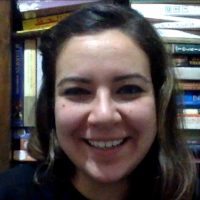How To Say Please In Arabic (Egyptian Dialect)

Author

Imagine sitting at a restaurant in Cairo and making an order.
You turn to the waiter and you don’t have the appropriate vocabulary to frame your sentences politely. “Bring me a chicken shawarma” or “I want a Molokhia dish!”
How rude, right?
Knowing how to say please and thank you is one of the first things you should know in your Arabic learning journey.
You'll be making a lot of requests and relying on people’s help and goodness as a newcomer in the city. Saying please and thank you politely is how you tell people you appreciate their help.
The following guide of simple expressions and phrases will enable you to make friends and friendly encounters, and overall a more positive experience in the country. Egyptians generally are very friendly and chatty people and we notice coldness in language or in body language, so no worries, I've got your back.
Yalla, let’s begin!
First let’s start with how to say “I want (this)” and then add the different ways of saying please to it.
| Arabic | Transliteration | English |
|---|---|---|
| أنا عايز | Ana ‘ayez | I want (masculine) |
| أنا عايزة | Ana ‘ayza | I want (feminine) |
| أنا عايز ده | Ana ‘ayez da | I want (masculine) this (masculine) |
| أنا عايزة دى | Ana ‘ayza da | I want (feminine) this (feminie) |
I want (masculine) a chicken shawerma sandwich.
This is exactly what I was warning you about earlier so let’s make it more polite!
How to say please in Arabic
Let’s go over the different ways of how to say please.
1. Men Fadlak / Men Fadlik
This is one of the most formal ways to say please to someone.
It literally translates as “From Your Grace” as Fadl means grace or favor.
| Arabic | Transliteration | English |
|---|---|---|
| من فضلَك | Men Fadlak | Literally: from your grace (directed to second person masculine) - Means “If you please” |
| من فضلِك | Men Fadlik | Literally: from your grace (directed to second person feminine) - means “If you please” |
Let’s look at the previous example of Chicken Shawerma sandwich again:
| Arabic | Transliteration | English |
|---|---|---|
| أنا عايز ساندويتش شاورما فراخ من فضلَك. | Ana ‘ayez sandwich shawerma ferakh men fadlak | I want a chicken Shawerma sandwich if you please |
| أنا عايزة كباية شاى من فضلِك. | Ana ‘ayza kobayit shai men fadalt | I want a cup of tea if you please. |
2. Law Samaht / Law Samahty
Law Samaht or Law Samahty is the most common way to say please in Egypt. You'll even hear to draw someone’s attention if they are not looking.
You will definitely hear this following conversation at cafes or restaurants:
The waiter is busy and jumping from table to table and there is a customer trying to get their attention so they can order.
| Arabic | Transliteration | English |
|---|---|---|
| زبون: لو سمحت! | Ziboun: Law Samaht? | Client: If you please! |
| جارسون: أيوة يا فندم | Garcon: Aywa ya Fandem? | Waiter: Yes, Sir. |
| زبون: ممكن أطلب؟ | Ziboun: Momken Atlob? | Client: Can I order? |
| جارسون: أتفضل يا فندم | Garcon: Etfadal ya Fandem | Waiter: Go Ahead, Sir. |
Let’s take a look at another example:
| Arabic | Transliteration | English |
|---|---|---|
| لو سمحتى أنا عايزة الكتاب ده | Law Samahti Ana A‘yza el ketab da. | If you please, I want this book. |
3. Law Tesmah? Law Tesmahy?
This is a continuation of Law Samaht / Law Samahty.
Samaht is a verb conjugated in the past (for second person masculine), which means to give permission, or allow.
Tesmah is the same verb conjugated in the present, for the second person masculine.
Tesmahy is conjugated in the present for second person feminine.
| Arabic | Transliteration | English |
|---|---|---|
| لو تسمح | Law Tesmah | Literally: If you permit / If you give permission to (directed to second person masculine) |
| لو تسمحى | Law Tesmahy | Literally: If you permit / If you give permission to (directed to second person feminine) |
4. Momken?
Momken is my favorite.
It literally means “Is it possible?”
| Arabic | Transliteration | English |
|---|---|---|
| ممكن؟ | Momken? | Is it possible? |
You would frame your questions with Momken to be polite.
You can then go the extra level and add either Law Samaht or Men fadlak at the end, and voila, fluency and politeness. All in one.
| ممكن كباية قهوة لو سمحت؟ | Momken kobayit Ahwa law samaht? | Can I get a cup of coffee please? (Literally: Is it possible to get a cup of coffee if you please) |
5. Law Astasmahak? Law Astasmahik?
This is another complex variation of Law Samaht / Samahty and a bit more difficult to pronounce, so I wanted to add this for the sake of our advanced readers.
| Arabic | Transliteration | English |
|---|---|---|
| لو استسمحَك | Law Astasmahak | If I may ask for your permission (directed to second person masculine) |
| لو استسمحٍك | Law Astasmahik | If I may ask for your permission (directed to second person feminine) |
6. Ba‘d Idhinak / Ba‘d Idihnik
Before we go in this one, there is an important note about pronunciation.
(Idhn) is verbal consent. The “DH” sound is ذ (dhal sound) but in Egyptian Arabic, we tend to de-emphasize emphatic sounds. So, the dhal becomes a zein ز . So, Ba‘d Idhnak would be pronounced:
Ba‘d Iznak / Iznik
For the sake of our readers, I’ll write it in the examples as such, but I wanted to include the original in the title, so you would recognize it if you see it or hear it in a different dialect.
| Arabic | Transliteration | English |
|---|---|---|
| بعد إذنًك | Ba‘d Izinak | Literally: After your permission (directed to second person masculine) |
| بعد إذنٍك | Ba‘d Izhnik | Literally: After your permission (directed to second person feminine) |
This is another one of my favorites because it is used in different occasions.
Initially it literally means after your permission and it’s a formal way to ask someone for something.
Usually it would be used when you are addressing older people or people in a formal professional environment.
| Arabic | Transliteration | English |
|---|---|---|
| بعد إذنًك ممكن تمضى على التقرير ده؟ | Ba‘d Iznak, momken temdy ala el taqrir da? | Literally: After your permission, would you please sign this report? |
Another interesting way that we use Ba‘d Izinak / Ba‘d Iznik is when we want to say “Excuse me”.
When someone stands in your way and you’re trying to pass or walk past them, this would be the formal way to tell them to step aside.
You don’t have to add anything after, and if you want to be emphatic, you can say:
| Arabic | Transliteration | English |
|---|---|---|
| بعد إذنٍك ممكن أعدى؟ | Ba‘d Ithnik momken A‘ady? | Excuse me, can I pass? |
7. Argouk/ Argouki
I BEG YOU! This phrase is for the more desperate ones out there.
If you had made a big mistake or really absolutely in need of a favor, Argouk / Argouki is the way to go.
| Arabic | Transliteration | English |
|---|---|---|
| أرجوك | Argouk | I beg you (directed to second person masculine) |
| أرجوكى | Argouki | I beg you (directed to second person feminine) |
Let’s take a look at a couple of examples:
| Arabic | Transliteration | English |
|---|---|---|
| أرجوكى سامحينى. ماكنش قصدى | Argouki Samhini. Makansh Asdi | I beg you (Please), I didn’t mean to. |
| Arabic | Transliteration | English |
|---|---|---|
| أرجوك خلص الشغل عشان مفيش وقت | Argouk Khalas elshoghl ‘ashan mafish wa‘t | Literally: I beg you (please) finish the work because there is no time Please finish the task because we’re out of time. |
Finally, let’s look at something light for practice.
It’s an old(ish) song from a comedy by Mostafa Qamar called Men Fadlak / Law Samaht.
He begins the video by saying Men Fadlak, Law Samaht, Nazil Eidak Taht!
“Please lower your hand” as he was about to get stabbed by this huge thug. He then realizes that people are following him, and so he breaks into song.
Hope this short guide was useful to you.
Now that you've learnt how to say your pleases, check out our guide on how to say thanks in Egyptian Arabic or how to say thank you in Arabic (MSA + other dialects).
Until then, مع السلامة